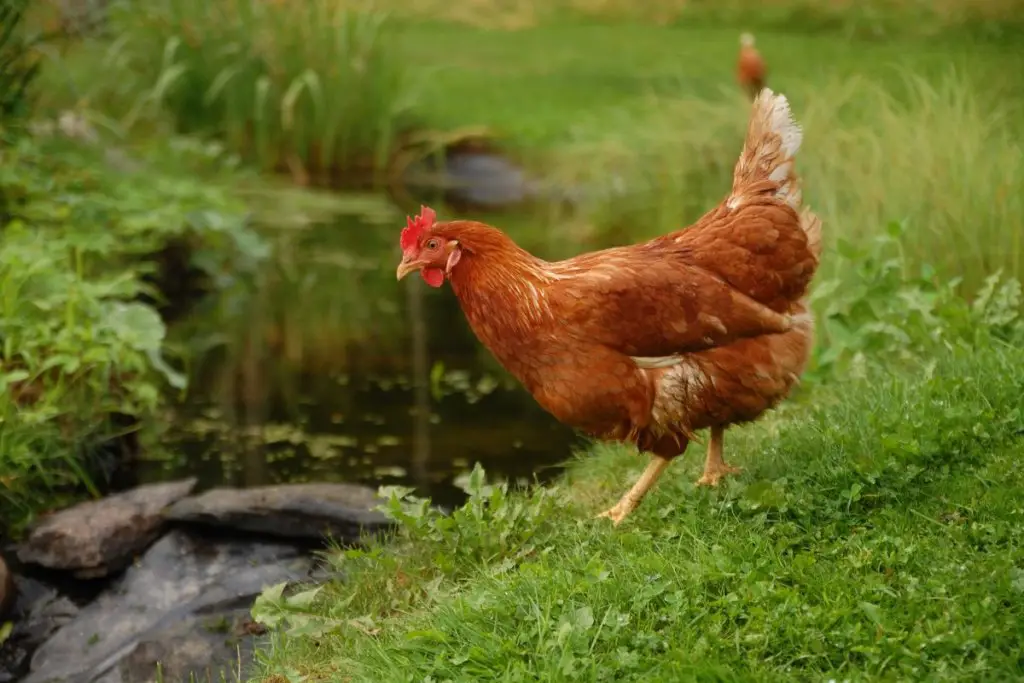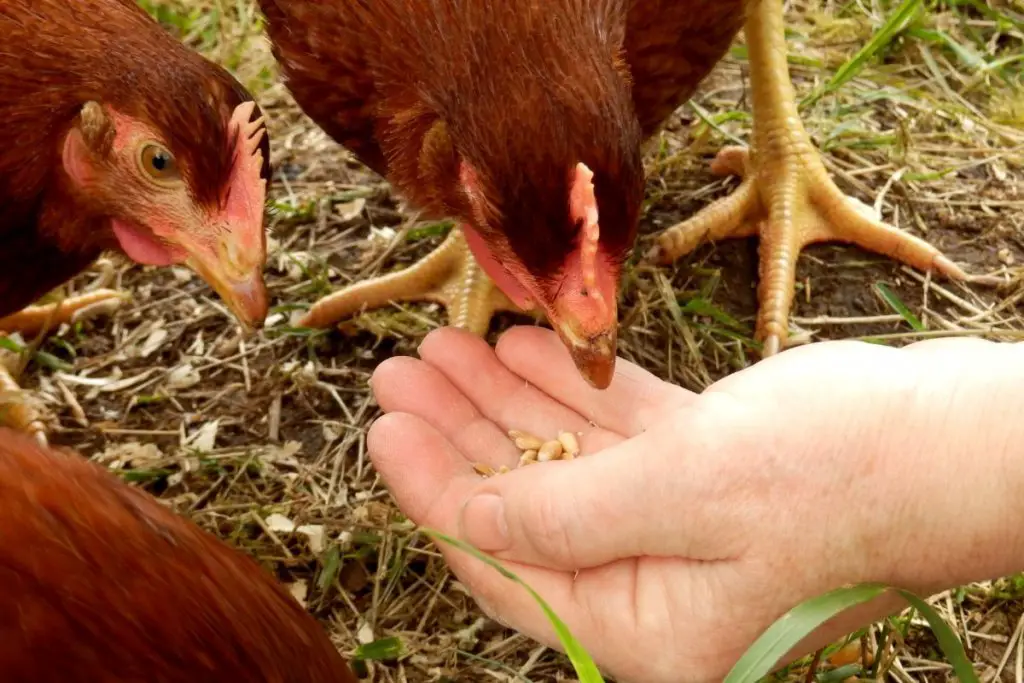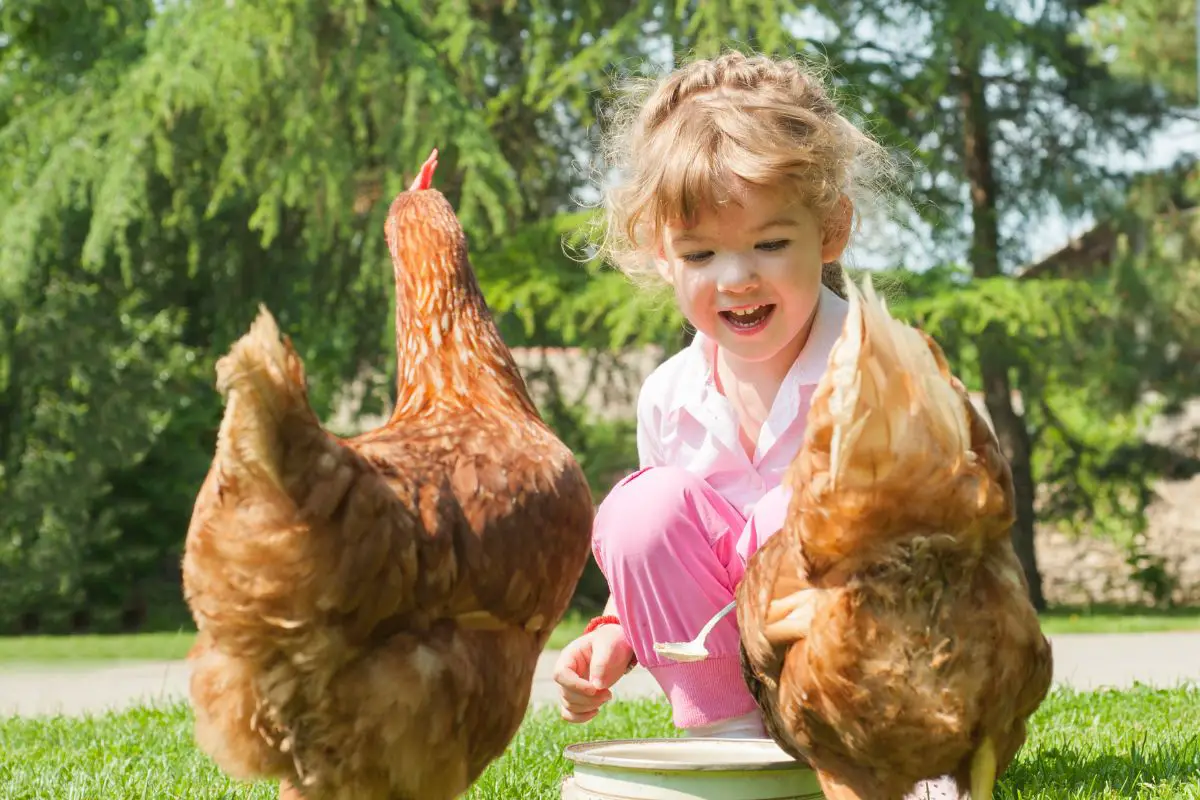On average, a chicken’s lifespan is 5 to 10 years with healthy backyard chickens often living past 8 years. Their lifespan is highly dependent upon on a multitude of factors including breed, housing, disease, predators, weather conditions and proper nutrition.
Let’s take a closer look at the life of a chicken and how these factors can affect how long your feathered friend might live.
Table of Contents
Chickens and Raising Standards
Due to selective breeding, today there are hundreds of breeds of chickens. The breed of the chicken determines many factors, including how long it may live. What is very important when estimating their lifespan is considering their use case.
Production Chickens
Production chickens are developed for the purpose of providing eggs and meat. Hybrid chickens have been cross-bred to produce more quantities of eggs and/or meat than your average chicken.
The average lifespan of these types of chickens is only three to five years.
Layer hens lay about one egg per day, while wild chickens may only produce about twelve per year. This intense ability causes strain on their bodies, reproductive tumors, prolapses, ovarian cancer, and many other reproductive tract issues that shorten their lifespan.
One breed that lays a lot of eggs and won’t live long because of this is ISA Browns.
Broiler Chickens
Broiler chickens have been bred to grow faster than the average chicken in order to provide more meat to sell. These types of chickens are likely to encounter skeletal issues that cause them to die early, although some are slaughtered as early as the age of six weeks.
Cornish Rocks are an example of production meat chickens that will only live for around six months.
Heritage Chickens
Heritage chickens have been bred naturally with their own kind and have longer life expectancies. Since the genetics of the heritage chickens haven’t been altered as much as the hybrids have, these types of chickens can live around eight to ten years.
Most wild chicken breeds live between three and seven years, due to roaming, which is excellent for chicken health. However, roaming comes with the risk of predators such as foxes, coyotes, wild dogs, owls and hawks.
Below is a list of popular chicken breeds and an average expected lifespan of each:
| Breed | Lifespan |
| Australorp | 6-10 years |
| Cochin | 8-10 years |
| Easter Egger | 8-10 years |
| Leghorn | 4-6 years |
| Orpington | 8-10 years |
| Plymouth Rock | 8-10 years |
| Rhode Island Red | 5-8 years |
| Wyandotte | 6-12 years |
Caring for Chickens
Here are some of the factors in chickens’ lives that can affect how long they survive. In each section, there are actions that can be taken to ensure the chicken lives the longest life it can.
Housing
A proper chicken coop should protect chickens from the cold in the winter and provide ventilation to keep them cool in the summer. The coop should also have sturdy security to keep out predators. If the chickens are housed properly, this will help them live longer.

Broiler barns are crowded, which don’t allow the chickens to roam, causing fatal skeletal issues. If chickens are living in unkempt coops, they will be suffering from bacterial diseases from their own feces. On commercial egg farms, many chickens are kept in battery cages, which are so harmful to chickens that several countries have banned them.
Disease
As with any type of live animal, there is always a risk of them contracting a disease. These diseases can range from minor illnesses to life-threatening conditions.
A common cause of early death of a chicken is Marek’s Disease. Signs of this disease include changes in eye color, the texture around feather follicles appearing bumpy, and paralysis. There is no cure for the deadly disease and it spreads quickly among the flock.
Another prevalent disease among poultry is the Virulent Newcastle Disease. Many chickens do not show signs of this disease, making it difficult to treat. It is a contagious viral infection from which most older chickens recover, but younger chickens are more likely to die.
Mites, lice, and worms are all parasites that affect a chicken’s health and therefore their lifespan.
Regular dusting and worming will help prevent diseases. Additional preventative actions include proper cleaning of coops, vaccinations, and contacting a veterinarian for checkups and concerns.
Nutrition
As with any animal, overfeeding or underfeeding can be damaging to its health. Overweight chickens will struggle with leg and back issues, heart problems, and respiratory issues. Additionally, too much protein in a chicken’s diet can cause kidney problems.

Chickens feed on plants, insects, and small animals, which give them nutrients that a feed can’t. This is another benefit to allowing chickens to roam. In addition to this snacking, commercial feeding companies provide specific calculations to ensure proper chicken feed volumes which will vary depending on the age and type of the bird.
To help maintain a proper lifespan, chickens should be fed in moderation and with high-quality feed. Chickens can also eat scraps such as cheese, vegetables, meats, and bread.
Proper diet and nutrition will allow a chicken to survive its full lifespan.
Chicken Health and Safety
If chickens are protected from predators, roam, and follow a balanced diet, they should be able to live at least eight years. This is also assuming they are not slaughtered or suffering from a disease.
If a chicken is well taken care of though, its immune system will be strong enough to possibly fight off some diseases. Both science and experience have allowed us to determine how long chickens live and actions we can take to help them live to their full life expectancies.
Raising Your Chickens
Whether you have a large-scale farm or a small coop, these helpful hints will be useful in keeping your chickens alive for years to come. Because they have such a versatile lifespan (5-10 years), you have the opportunity to find what method of care works best for your animals.
Remember, different breeds may require different types of care – meaning that you always should do your research before purchasing any sort of poultry.

